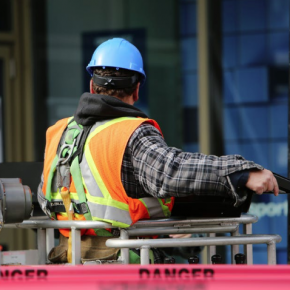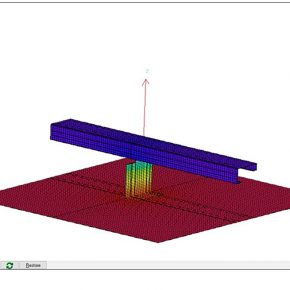
How do you ensure specialists are following health and safety protocol?
Health and safety hasn’t always had the fairest of hearings has it? Whether it’s urban myths about people being banned from doing things or grumblings about red tape, the rules around health and safety are often seen in a negative light. Yet, it’s time we put the stereotypes to one side and consider what this is all about.
Consider these facts:
- In the UK there are 1.3 million working people suffering from a work-related illness
- 609,000 injuries occurred at work in 2016/17 according to the Labour Force Survey
- 31.2 million working days were lost in 2016/17 as a result of work-related illness and workplace injury
- The estimated cost of injuries and ill health is £14.9 billion
- Worst of all, 137 workers were killed at work in 2016/17
- Those stats alone should show the seriousness of what we’re dealing with – from loss of productivity right up to loss of life.
It’s important, then, to take this seriously but that’s not to say it’s easy. Here’s our five step guide of what you need to consider when it comes to ensuring specialist workers keep up with the protocols and stay safe…
Health and Safety Legislation
First of all, you need to know what the law is in relation to your industry. Don’t fall back on ‘what you learned years ago’ – legislation changes all of the time and it’s important that you refresh your knowledge to keep up with the times. Check the Health and Safety Executive’s website, any relevant Government department and, importantly, trade publications for your industry (if you’re not sure, find one here). These will often alert you to changes before they even come in. Only by being aware of the latest legislation can you ensure your workers are keeping up with the correct protocols.
Training
Linked to the issue of legislation is that of training. Once you know the rules, you need to ensure the rest of your workforce does too. Every new member of staff must carry out training before they begin a specialist task – however, much the temptation is to ‘get on with it’ – and this training must be reinforced with regular refresher sessions. You can’t expect people to stay safe if they don’t know how to.
Equipment
Training is only part of your obligation as an employer. As well as the knowledge needed to do their jobs safely, employees need to be given the right equipment. From a health and safety perspective, this means businesses ensuring that their equipment is functioning correctly and operates in a way that protects workers engaged in specialist activities and makes their job as straightforward as possible.
Communication
Training and equipment have to be backed up by effective communication structures. Specialist workers need to have a clear idea of what they are being asked to do and when and, crucially, how to report any issues or concerns they might have. Failure to listen to and fix any problems identified by those on the front line could lead to bigger trouble in the future.
Monitoring
Finally, the importance of monitoring should not be missed. Checking up on the training and equipment you’ve offered and its success – as well as reviewing your communication process – is important to ensure the work you’ve put in has paid off. This isn’t about snooping on people – it’s about checking you are doing all you can to keep them safe.
Latest news

26th July 2024
Enfield Speciality Doors completes world-class project for Atlas Copco HQ
A rundown office and warehouse building completely transformed into a modern headquarters for Atlas Copco has been fitted with more than 120 internal fire doors from Enfield Speciality Doors.
Posted in Access Control & Door Entry Systems, Articles, Building Industry News, Building Products & Structures, Building Systems, Case Studies, Doors, Interior Design & Construction, Interiors, Posts, Restoration & Refurbishment, Retrofit & Renovation, Security and Fire Protection, Sustainability & Energy Efficiency, Timber Buildings and Timber Products, Wooden products
26th July 2024
Abloy UK launches new white paper
Abloy UK, a leading provider of security and access control solutions, has launched a new white paper.
Posted in Access Control & Door Entry Systems, Architectural Ironmongery, Articles, Building Industry News, Building Products & Structures, Building Services, Doors, Facility Management & Building Services, Health & Safety, Information Technology, Innovations & New Products, Publications, Research & Materials Testing, Security and Fire Protection
26th July 2024
MCRMA Member Profile: David Roy, Director of Roofconsult
David Roy of MCRMA member company Roofconsult has more than 50 years’ experience to draw upon working in the building envelope sector and a unique perspective on how it has changed in that time.
Posted in Articles, BIM, Infrastructure & CAD Software, Building Associations & Institutes, Building Industry News, Building Products & Structures, Building Services, Building Systems, Cladding, Information Technology, Restoration & Refurbishment, Retrofit & Renovation, Roofs, Walls
26th July 2024
Strand: Enhancing Door Functionality and Safety
Craig Fox, Sales Director for Strand Hardware, outlines how door industry professionals might apply door limiting stays…
Posted in Architectural Ironmongery, Articles, Building Industry News, Building Products & Structures, Building Services, Doors, Facility Management & Building Services, Health & Safety, Restoration & Refurbishment, Retrofit & Renovation
 Sign up:
Sign up: